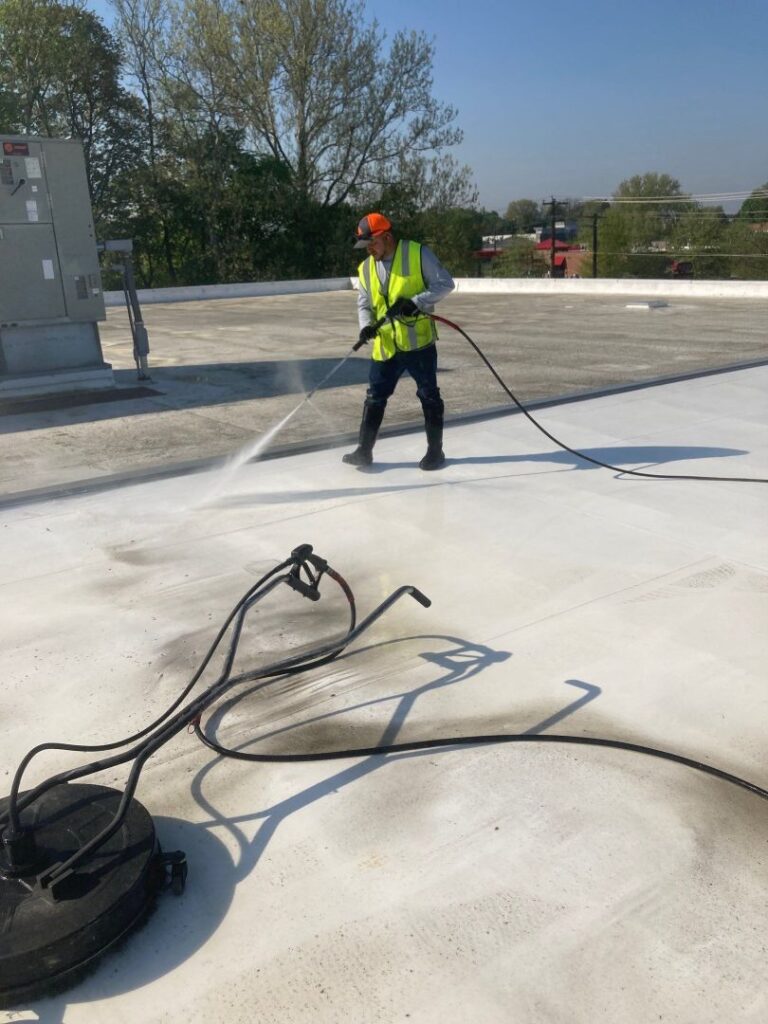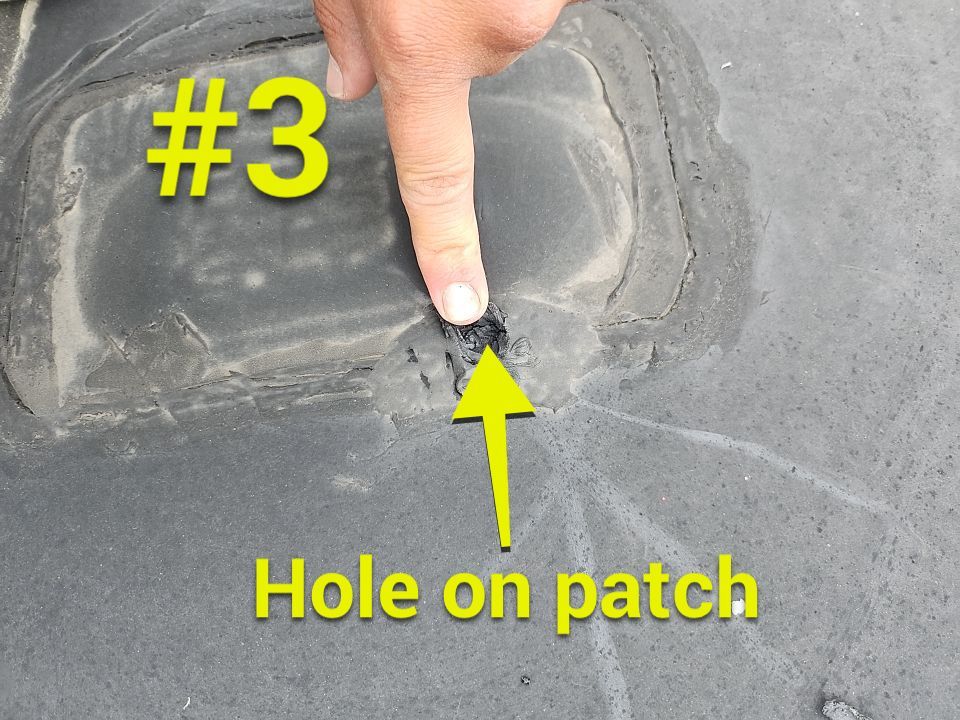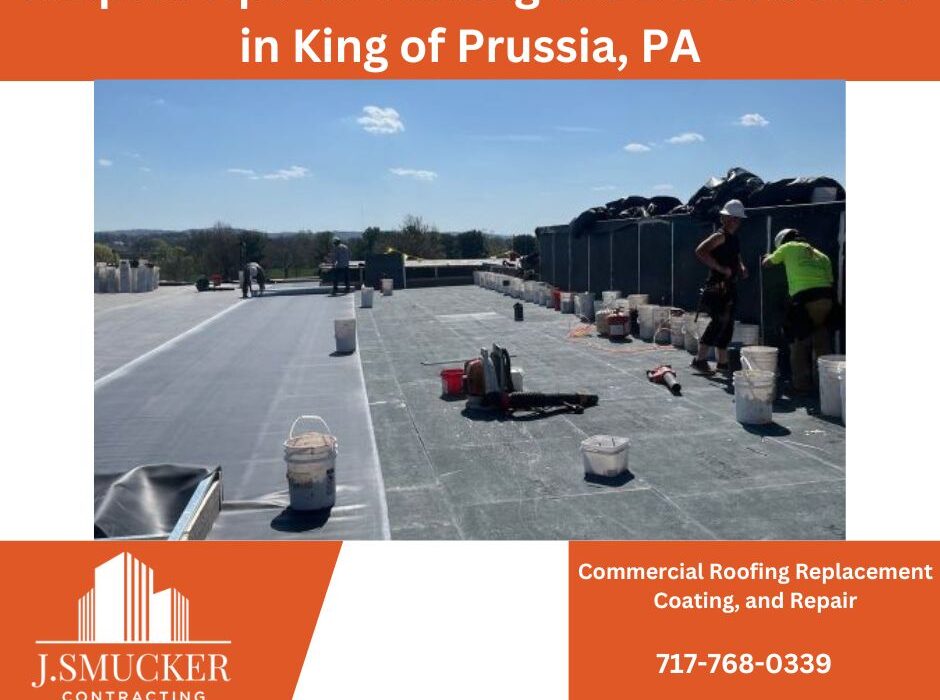- By admin
- Roofing Contractor
- 0 Comment
Helpful Tips For Finding The Best Roofer in King of Prussia, PA
While we at J Smucker Contracting certainly feel we are more than qualified to assist in any roofing job – residential and commercial – we will be sure not to make this a shameless self-promotion for our services. Moving into 2024, we indeed would like to create an honest guide to assist you in finding the best roofing contractor in King of Prussia and surrounding areas.
Your home or business is almost always a unique design, and its roof, most importantly, has to reflect that uniqueness. And because your roof, along with the building walls, is the most important individual asset you have when it comes to protecting your home, you want to make sure you find the best roofing contractor out there, because there sure are a lot to choose from!
Below, we’ve compiled a list of some of the most important tips and considerations you should have top-of-mind to help you finalize the appropriate roofing contractor for your needs.
Experience
Experience is an obvious one. Roofing companies can often be a dime a dozen, depending on the area you live in. Many of which spring up and are out of business within a short amount of time, so finding a roofing contractor that has at least a few years under its belt is usually a good idea.
An extension of experience is reputation; however a good reputation and years of experience don’t always go hand in hand. One of the greatest features of the internet today are online reviews. And while there may be a slight segment of the population that is more inclined to post negative experiences than positive ones online, more often than not you’ll be able to gain a great understanding as to the reputation and work ethic of a roofing company by reading through their online reviews.
Google Business Profiles (formerly 'Google My Business')
The very first starting point for gauging a local business’s credibility and trustworthiness via online reviews should be their Google Business Profile; and at this point in 2023 if a roofing contractor doesn’t have a Google Business Profile, that should probably be a red flag.
Take a few minutes to scroll through their Google reviews and you should be able to gauge the sort of work and service the roofing company provides. Other review platforms like Yelp (more popular on the west coast) and Angie’s list also can give good insight into the company you plan on potentially doing business with.
Google Business Profiles have a rating of 1 to 5 stars. Most competent companies with a good reputation should have at least 4 stars. Any company with less than four stars (3.6 for example) is probably not a good sign.
What to Know About Roofing Warranties
While most homeowners and business owners tend to focus on the length of the warranty, there are other important factors to take into consideration when choosing the right roofing contractor – and when it comes to ‘commercial roofing warranties 101’, you should begin by understanding the two types of commercial roofing warranties, the manufacturer warranty and the labor warranty.
Manufacturer Warranty
The manufacturer warranty is provided by the roofing materials manufacturer and guarantees the quality of the materials used in the roofing system for a specific period of time. The warranty period may vary based on the type of materials used, with some materials having a limited lifetime warranty and others having a warranty period of 20 to 25 years. Some materials may also offer a total system warranty that covers both labor and materials.
Labor Warranty
The labor warranty is provided by the roofing contractor or installer and covers any issues related to the installation of the roofing system. The length of the labor warranty may vary from one year to the same length as the material warranty, with some contractors offering opportunities for extended labor warranties if the client agrees to yearly inspections. However, the labor warranty only covers the labor to fix the roof if it is leaking due to poor installation of the roofing system. Warranties typically do not cover damage caused by events such as falling branches or other external factors.
It is important to remember that some manufacturer warranties may have contingencies attached to them – such as requiring yearly preventative maintenance and inspections to maintain the warranty’s validity. It is always recommended to perform regular preventative roof maintenance to ensure the longevity of the roofing system and to avoid reactive roof repairs.
For a more detailed look at how specifically commercial warranties work, read our recent in-depth article “A Guide to Commercial Roofing Warranties”.
Get Multipe Quotes
When it comes to finding the perfect roofing contractor, it’s important to meet with several contractors and gather a at least a few quotes. Consumers desire value when it comes to hiring professionals to complete tasks, but oftentimes people incorrectly equate value solely with price.
Obtaining multiple quotes is advantageous as it allows you to receive various perspectives and opinions on the same project. By getting multiple quotes, you can better evaluate the worth and professionalism of the contractors more than just relying on the price alone.
For instance, does the contractor give you with a lengthy report/estimate detailing the size and extent of the project? Do they follow up with an exhaustive overview during a phone or Zoom conversation detailing the entire process from start to finish? Some roofing companies might present you with a one-page, simple estimate, whereas a more professional contractor should provide you with a comprehensive, multipage report, with photos provided, procedures and figures – all laid-out and enumerated – remember, you don’t want any gray area!
To reiterate the aforementioned point again – value is synonymous with getting the most for your money, whereas price represents the least or the most amount of money spent. It’s your responsibility to obtain multiple quotes and discover the best overall value between them.
For additional information regarding this subject, your should check out our previous article entitled “Comparing Roofing Contractors“

Get Everything in Writing
At J Smucker Contracting, we staunchly adhere to the belief that every detail, no matter how seemingly insignificant, should be provided for and recorded in writing. Whether you ultimately entrust your roofing project to J Smucker Contracting’s hands or to the care of another contractor, we recommend and emphasize the necessity of documenting every bit of communication. We would go so far as to suggest that you conduct any and all exchanges, especially those containing mission-critical information, through email. After all, in the event of an unforeseeable disaster befalling your roofing project, an electronic trail of communication can serve as a veritable lifeline, sparing you the anguish of potential legal entanglements.
With that in mind, there are a few major points to make absolutely sure you have in writing before you proceed with the roofing project:
- The nuances of roofing projects are manifold and often demand exacting specification. Among the crucial considerations that demand meticulous documentation is the matter of precisely which areas of the roof are slated for refurbishment. Get it in writing! Bear in mind that not every roofing project needs a comprehensive overhaul. Many times it is entirely feasible and, indeed, quite common for projects to only be repairing specific sections of the roof. Therefore it’s important for your contractor to document AND for you to be aware of the precise locations where the labor of the roofing project will be designated.
- Photos. The roofing contractor should be providing you with photos and diagrams of precisely where the work/repairs are to be done. Nothing should be left unknown. This is where new or inexperienced roofing contractors can sometimes fall short. They don’t understand the importance of documenting in writing and in photos the scope of the project before it starts. This can lead to expensive and complicated issues down the road when additional work needs to be done (unbeknownst to you) and the project can go wildly off budget.
- When it comes to commercial roof construction, a key consideration that should be approached with meticulous detail is the issue of price and timeline. It is very important that both parties involved come to the table with a clear, unambiguous understanding of exactly how much the undertaking will cost, the estimated time frame for the project’s completion, and, crucially, the exact date at which the roofing estimate will become null and void. To put it another way, a precise, detailed written record of your projects’ details can serve as a veritable lighthouse amidst the tempestuous seas of a complex roofing project – ensuring that all parties involved are operating in unison towards a clearly defined objective.
- Beyond the photos and picture diagrams that detail the work to be done, before the project begins and you ‘sign on the dotted line‘, your contractor should provide a list that details all of the work that will be done. Now, we’re not saying that the number of nails and screws should be listed, but the point is that you should have a clear detailed list of the work that will be done before anything begins.
- Contingencies! What if something goes wrong? In the case of unknowns events, your roofing contract should help you understand what remedies should be taken and at what price in the case of these unknown events. Many times, when you start peeling off the layers of an old roof, a lot of unforeseen circumstances can arise – for example an unforeseen section of roof rot. At the very least, a square foot pricing of unforeseen sections should be written into the contract should any of these prior undetected events appear.

Make sure you receive exacting photos and a detailed list of the specific work a roofing contractor will provide before you sign the contract
What About Licenses and Certifications?
In the dizzying, multifarious world of roofing materials, it is not uncommon for industry leaders to place licensing strictures upon the contractors who install their products. Makes sense from a warranty perspective, right? One such stipulation is the requirement that the installer be approved by the manufacturer – a designation that often demands the successful completion of installation training courses and tests. The rationale behind this requirement is clear: by ensuring that only contractors who meet rigorous standards are allowed to install their materials, manufacturers can minimize the risk of warranty-related headaches down the road. In fact, it is not uncommon for the warranty offered on a given roofing material to be valid only if the contractor is registered with the manufacturer as an approved installer. Thus, while this aspect of the roofing project may initially seem of secondary importance, it is, in fact, a critical consideration that can greatly impact the efficacy of your warranty coverage.
To put it simply, if the manufacturer requires that your contractor be approved, this should be an important concern driving your decision-making process. If, on the other hand, this is not a stipulation, it may be less important – though this determination should, of course, be made with due diligence and attention to detail.

